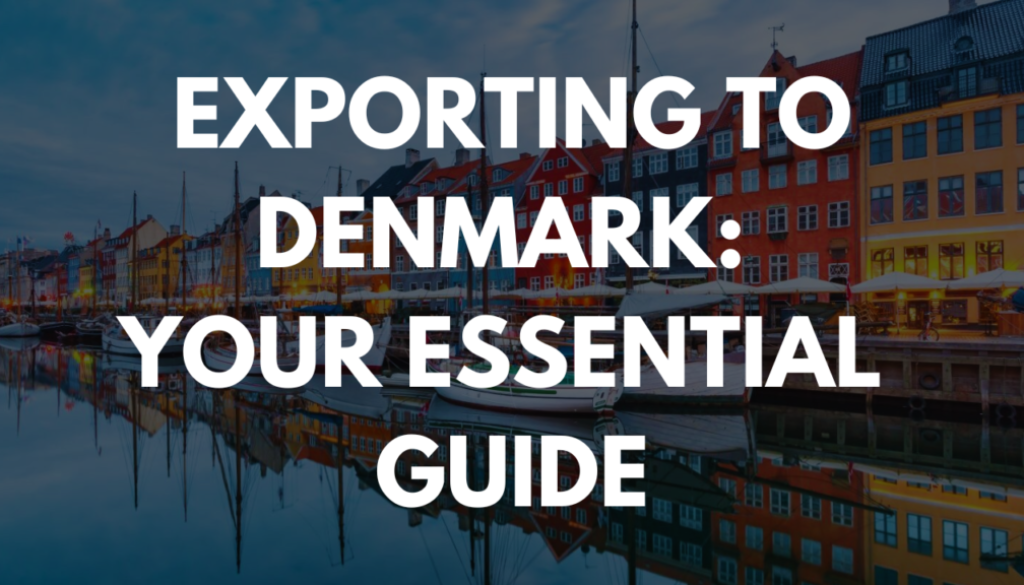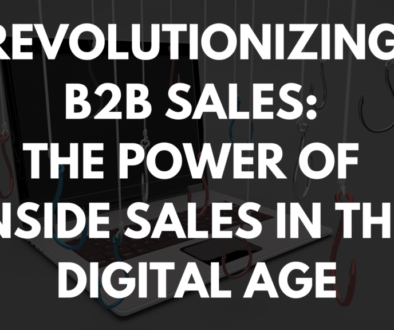Exporting to Denmark: Your Essential Guide
Last Updated on 22. Nov 2024 by b2bexport
Exporting to Denmark is a vibrant market with a stable economy and a strong focus on innovation and sustainability.
Denmark is renowned for its progressive policies and dedication to green energy, positioning itself as a global leader in both sustainability and economic development. The Denmark market economy is characterized by its stability, innovation, and emphasis on environmental stewardship, making it a prime destination for businesses aiming to expand into new territories. For companies interested in exporting to Denmark, understanding the intricacies of this market is critical to ensuring a successful and sustainable entry strategy.
The Danish market operates with a unique blend of economic growth and social equity, supported by its forward-thinking approach to renewable energy and green technologies.
This balance makes Denmark a particularly appealing choice for exporters and entrepreneurs who value not just profit but also a commitment to sustainability. Whether you are involved in manufacturing, technology, or services, aligning your business with Denmark’s eco-friendly principles can give you a competitive edge. Navigating Denmark’s business culture is equally essential for success.
The Danish way of conducting business is rooted in transparency, collaboration, and a focus on long-term relationships.
Understanding these cultural nuances is vital for building trust and fostering partnerships within the local market. Danish professionals value punctuality, open communication, and a commitment to high-quality standards—traits that should be integrated into your approach to business dealings.
Moreover, the Denmark market offers immense opportunities across various industries, including the booming renewable energy sector, advanced technology, and a well-structured public sector. These industries not only drive the country’s economy but also set benchmarks for innovation and sustainability on a global scale. In this blog post, we will delve deeper into the economic framework of Denmark, the benefits and challenges of exporting to Denmark, and the role of B2B Export Services in simplifying market entry.
By understanding the Denmark market economy and aligning with the values embedded in Denmark’s business culture, you can position your business for long-term success in this thriving Nordic economy.
Business Etiquette Tips: Important Dos and Don’ts
Understanding business etiquette in Denmark is crucial for building strong professional relationships and ensuring smooth business transactions.
Here are some essential tips:
Dos:
Be Punctual: Danes value punctuality and view it as a sign of respect and professionalism.
Always arrive on time for meetings and appointments.
Dress Smartly: Business attire in Denmark is usually smart and conservative.
Men often wear suits and ties, while women opt for business suits or dresses.
Be Direct and Honest: Danish business culture values directness and honesty.
Be clear and straightforward in your communication.
Respect Work-Life Balance: Danes prioritize a healthy work-life balance.
Avoid scheduling meetings outside of standard working hours (9 AM to 5 PM).
Use Titles and Last Names: Initially, address your Danish counterparts by their titles and last names unless invited to use first names.
Don’ts:
Avoid Excessive Flattery: Danes appreciate modesty and can be uncomfortable with excessive praise or flattery.
Don’t Interrupt: Allow your Danish counterparts to finish speaking before you respond. Interrupting can be seen as rude.
Avoid Personal Questions: Stick to business-related topics during meetings.
Personal questions can be perceived as intrusive.
Don’t Rush Decisions: Danes prefer to make well-informed decisions.
Rushing or pushing for quick answers can be counterproductive.
Avoid Displaying Wealth: Flashy displays of wealth are frowned upon.
Maintain a humble and modest demeanor.
The Economic Landscape of Denmark
Denmark’s economy is characterized by its focus on sustainable development and innovation.
The Danish government has implemented numerous policies to promote environmental sustainability, economic growth, and social equity. These efforts ensure the long-term viability of the country’s economic development, benefiting both present and future generations.
Sustainable Practices and Environmental Sustainability
Denmark is renowned for its commitment to environmental sustainability.
The country has made significant strides in reducing its environmental footprint and promoting renewable energy sources. Wind turbines are a common sight, and the Danish government continues to invest in sustainable practices to combat climate change and reduce reliance on fossil fuels.
Economic Sustainability and Growth
Denmark’s economic sustainability is evident in its stable GDP growth and low unemployment rates.
The country’s economic activity is diverse, spanning industries such as technology, food processing, medical equipment, and transportation equipment. This diversity ensures resilience and continuous economic development.
Future Generations and Sustainable Development
Denmark’s approach to sustainable development is centered on the needs of the present without compromising the ability of future generations to meet their own needs.
This principle aligns with the United Nations’ definition of sustainability, emphasizing the importance of balancing economic, environmental, and social factors.
The Role of Natural Resources and Renewable Energy
Denmark’s natural environment and resources play a crucial role in its sustainability efforts.
The country has leveraged its access to the North Sea for natural gas extraction while prioritizing the transition to renewable energy. The use of wind turbines and other renewable energy sources has significantly reduced Denmark’s reliance on fossil fuels, setting an example for other EU countries.
Social Sustainability and Equity
Social sustainability is a core component of Denmark’s development strategy.
The Danish government focuses on ensuring social equity and well-being for all citizens. Policies aimed at reducing social disparities and promoting a high quality of life contribute to the overall sustainability of the country. Denmark’s commitment to sustainability, economic growth, and social equity makes it an attractive market for businesses looking to expand.
By understanding the local business etiquette and leveraging the country’s focus on innovation and sustainable development, exporters, expert managers, and startup founders can successfully navigate the Danish market.
Leveraging Resources
B2B Export Services offers a range of resources to facilitate market entry into Denmark.
From data on economic activity and supply chain dynamics to insights on the Danish government’s policies, these resources provide valuable support for businesses aiming to expand in this high-income Nordic country. Understanding the economic landscape and business etiquette of Denmark is essential for successful market entry and long-term success.
By adhering to the principles of sustainability and leveraging Denmark’s strong economic foundation, businesses can make a positive impact and ensure their growth aligns with the country’s commitment to protecting the natural environment and promoting social equity.

Market Overview: Quick Snapshot of the Economic Landscape and Main Industries
Denmark, an EU country and part of the Nordic countries, boasts a highly developed economy with a focus on sustainable development, technology, renewable energy, pharmaceuticals, and maritime industries.
Here’s a quick snapshot of the economic landscape:
Economic Stability
Denmark has a stable economy with high GDP growth per capita and low unemployment rates.
The Danish government prioritizes economic sustainability, ensuring long-term viability and the well-being of its citizens. The country ranks highly in terms of economic freedom and ease of doing business, fostering a positive environment for economic activity.
Main Industries
Renewable Energy:
Denmark is a global leader in wind energy and renewable technologies.
The country aims to be carbon-neutral by 2050, demonstrating a commitment to environmental sustainability and reducing its environmental footprint. Wind turbines and other forms of renewable energy are central to Denmark’s strategy for combating climate change and pursuing sustainability.
Pharmaceuticals and Life Sciences:
Home to major companies like Novo Nordisk, the pharmaceutical industry is a significant contributor to the economy.
This sector supports both economic and social sustainability, addressing the needs of the present while considering the distant future.
Maritime Industry:
With a strong maritime tradition, Denmark’s shipping industry, including Maersk, plays a critical role in global trade.
This industry is essential for Denmark’s economic development and utilizes the natural environment, particularly the North Sea, to facilitate trade and transportation.
Information Technology:
Denmark has a thriving IT sector, with Copenhagen being a hub for tech startups and innovation.
The integration of technology in various sectors supports sustainable practices and enhances economic growth.
Agriculture and Food Processing:
Denmark is known for its high-quality agricultural products, including pork, dairy, and fish.
Sustainable agricultural practices are vital for maintaining the balance between economic activity and environmental protection.
Trade and Export
Denmark is an export-oriented economy, contributing significantly to its GDP growth.
Key export commodities include machinery, pharmaceuticals, food products, and maritime equipment. Major export partners are Germany, Sweden, and the United States. Denmark’s ability to maintain a fixed exchange rate enhances its competitiveness in international markets.
Imports
Denmark imports raw materials, machinery, and consumer goods to support its industries and meet the needs of its population.
Major import partners include Germany, Sweden, the Netherlands, and China. Efficient supply chains and the sustainable management of natural resources are crucial for Denmark’s economic sustainability.
Sustainability and Future Outlook
Denmark’s focus on sustainability encompasses economic, environmental, and social dimensions.
The country’s efforts in environmental protection, such as reducing the use of fossil fuels and promoting renewable energy, are aimed at safeguarding biodiversity and ensuring the long-term viability of natural resources. The Danish government’s policies are aligned with the United Nations’ sustainable development goals, emphasizing the importance of social equity and the ability of future generations to meet their own needs without compromising the ability of present generations.
Denmark’s commitment to sustainability and innovation positions it as a model for other high-income countries.
The integration of sustainable practices across industries, from renewable energy to food processing and information technology, underscores the country’s dedication to a balanced and sustainable future. In recent years, Denmark has demonstrated that it is possible to achieve economic growth while minimizing environmental impacts.
The country’s strategic decision-making and investment in renewable energy and technology not only address climate change but also foster economic and social well-being.
Introduction to Resources
Entering the Danish market can be streamlined with the right resources.
B2B Export Services provides comprehensive contact lists and cheat sheets tailored to various markets, including Denmark. Here’s how our resources can assist you in pursuing sustainability and achieving economic growth in this high-income EU country:
Tailored Contact Lists
Our contact lists provide you with direct access to key players in the Danish market, including:
Industry Leaders:
Contacts in major industries like renewable energy, pharmaceuticals, and IT.
Government Officials:
Connections within Danish trade and investment agencies, including the Danish government.
Local Distributors and Partners:
Essential contacts for logistics and distribution networks, crucial for economic activity and sustainability.
Benefits of Using B2B Export Services Resources
Efficiency:
Save time and effort by accessing pre-vetted contacts and reliable information, enhancing economic development.
Local Expertise:
Leverage our in-depth knowledge of the Danish market to avoid common pitfalls, ensuring the long-term viability of your business.
Competitive Edge:
Gain a competitive advantage with insider tips and strategies for successful market entry, contributing to GDP growth and economic sustainability.
Denmark and Sustainable Development
Denmark is a leader in sustainable development, balancing economic growth with environmental sustainability.
The country emphasizes the three pillars of sustainability: economic, social, and environmental. By integrating sustainable practices, Denmark ensures the well-being of present and future generations.
Renewable Energy:
Denmark’s commitment to renewable energy, such as wind turbines, reduces reliance on fossil fuels and minimizes the environmental footprint.
Natural Resources:
Sustainable management of natural resources, including the North Sea’s natural gas, supports economic activity without compromising the ability of future generations to meet their own needs.
Social Equity:
The Danish government’s policies promote social equity, ensuring that economic benefits are distributed fairly across society.
B2B Export Services: Supporting Your Sustainable Market Entry
Our resources align with Denmark’s sustainability goals, helping businesses minimize their environmental impact while promoting economic and social sustainability.
Environmental Protection:
By adhering to Danish regulations and best practices, businesses can contribute to environmental protection and reduce biodiversity loss.
Economic Sustainability:
Our resources help businesses thrive in the Danish market, fostering long-term economic sustainability and positive impact on the natural environment.
Social Sustainability:
Understanding Danish cultural and corporate practices ensures businesses support social sustainability and equity.
B2B Export Services contact lists and cheat sheets are invaluable tools for entering the Danish market. By providing access to key contacts, market entry strategies, and cultural insights, we help businesses achieve sustainable development, ensuring the needs of the present do not compromise the ability of future generations.
With our support, your business can navigate the complexities of the Danish market and contribute to its sustainable future.

Exporting to Denmark – Conclusion
Denmark, a high-income EU country, presents a wealth of opportunities for exporting to Denmark and businesses aiming to establish a presence in the Denmark market.
With its robust Denmark market economy, the country offers a stable and sustainable environment for businesses seeking growth and innovation. Understanding Denmark’s business culture, which emphasizes collaboration, sustainability, and social equity, is essential for navigating its economic landscape. Exporters can benefit from Denmark’s focus on sustainable development and renewable energy initiatives, leveraging opportunities in key sectors such as food processing, transportation equipment, medical equipment, and military equipment.
Denmark’s commitment to sustainability, supported by efficient supply chains and the innovative use of renewable energy sources like wind turbines and natural gas from the North Sea, makes it a prime destination for exporters.
The Danish government’s emphasis on environmental protection, social sustainability, and economic stability further reinforces the appeal of the Denmark market economy for international businesses. By aligning with Denmark’s business culture and leveraging its stable economic environment, businesses can thrive while contributing to the country’s sustainability goals. For companies focused on exporting to Denmark, understanding its history of resilience and leadership in sustainability will pave the way for long-term success.
Denmark’s collaborative approach among public, private, and international organizations ensures a prosperous future for businesses and the well-being of future generations.




